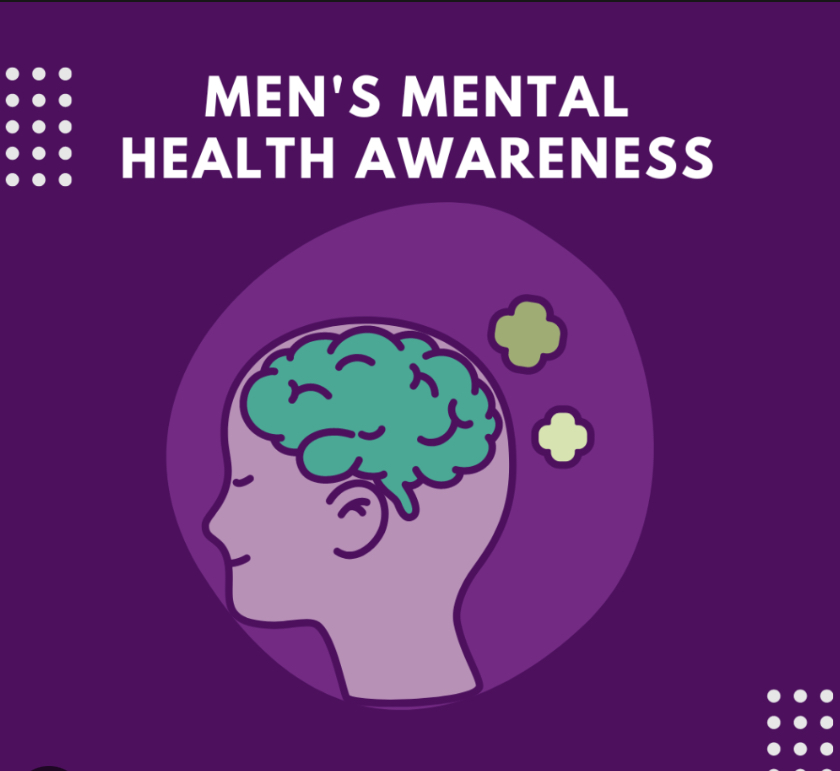Expressing emotion can come hard to those who were never taught to do it. This is commonly seen in men because of the stigma that has been built behind their mental health. The most common stereotype is that they will be perceived as weak or feel ashamed for asking for help. According to National Runaway Safeline, “Society has positioned men as strong, privileged, and the breadwinners, so having a perceived disadvantage, such as a mental illness, makes them seem weak or unmanly. These stigmas and toxic masculinity more broadly, ultimately create a space in which people fear speaking up about their health or accepting their diagnoses.”
This problem has been recognized by the newer generation of boys becoming men. Benjamin Clark, junior, recognizes the problem himself. Clark knows people who believe that boys shouldn’t cry, and it’s not right for boys to cry, but he doesn’t agree with that ideology.
“I definitely take my mental health seriously, and all I do is take time away from the phone and everything, and just think to myself, ‘What have I accomplished today? What have I accomplished in this week, the month, the year, etc?’” said Clark.
The ideology of men’s health is noticed more commonly than one might think. Aashriya Harris, junior, says that she sees in many of her male friends that they’re not comfortable with expressing their emotions. She sees that her male friends often fight silent battles with themselves and don’t like relying on others for help.
“They would bottle stuff up until one day something will happen, and then they’ll just let it all out in anger and cause everyone around them to want to not be friends with them or associated with them. I believe they do this because they feel they will be looked down upon by others,” said Harris.
Young boys have acknowledged that they see common mental health issues amongst their peers. Jashawn Prince-Mays, junior, says that he believes a common issue his generation has is attachment issues. Prince-Mays believes that when a guy finds someone who makes them feel safe and feel comfortable they start to go overboard and they want to never let that one person go because it might be the first time they’ve felt genuinely seen.
“When that one woman or one of the things happens in our life, we seem to get attached to it because some men don’t get that love and security, they need to prove so they get attached to it. They keep running with it and cherish that so much. But when the attachment, when the thing that made them happy, breaks off, they’re still attached to it,” said Prince-Mays.
Not only do young men recognize that they should focus more on their mental health, but they have also been assisting their friends with getting more comfortable with talking about how they truly feel. Daniel Omoregie, junior, explains that he always wants to be a safe space for his friends to come to him about anything.
“Every single month, I always check in on them and always text them ‘Hi, how are you doing? Are you doing okay?’ Just things like that is always big,” said Omoregie. “For me, at least, just to always check up and then at the end of the month, or even a hard day could really make a big difference in their entire day.”
Not only have the newer generation of men acknowledged the problems and struggles of men’s mental health but they have acknowledged where some of the problems start: households. Kyle Okoth , junior, says that boys and men have problems expressing themselves because it was never taught to them or accepted in their household.
“As a community we should be less judgmental in comparing men’s emotions to femininity. I feel like emotions are both masculine and feminine,” said Okoth. “They’re both equal.”

